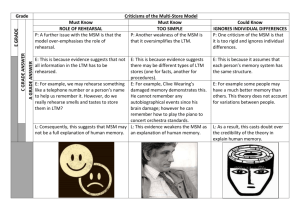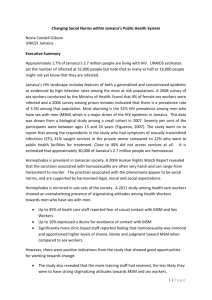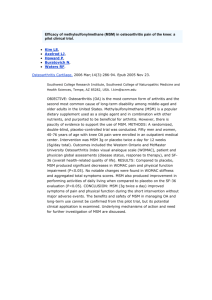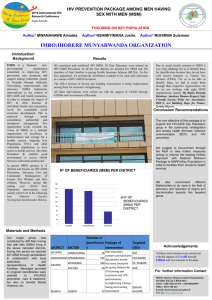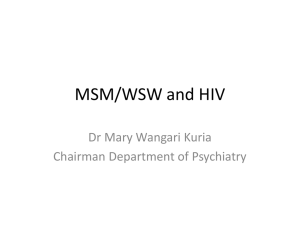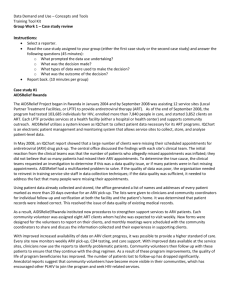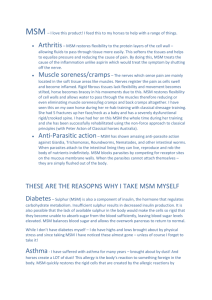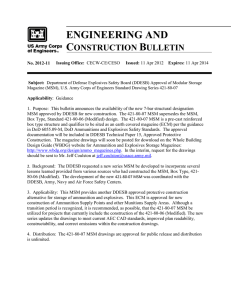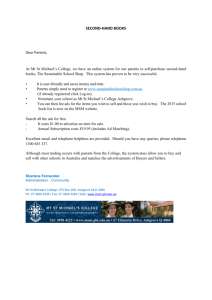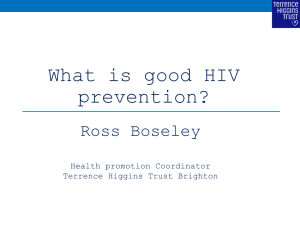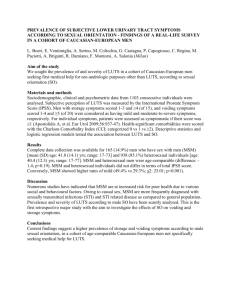Small Group Activity 1: Case Study Answers
advertisement
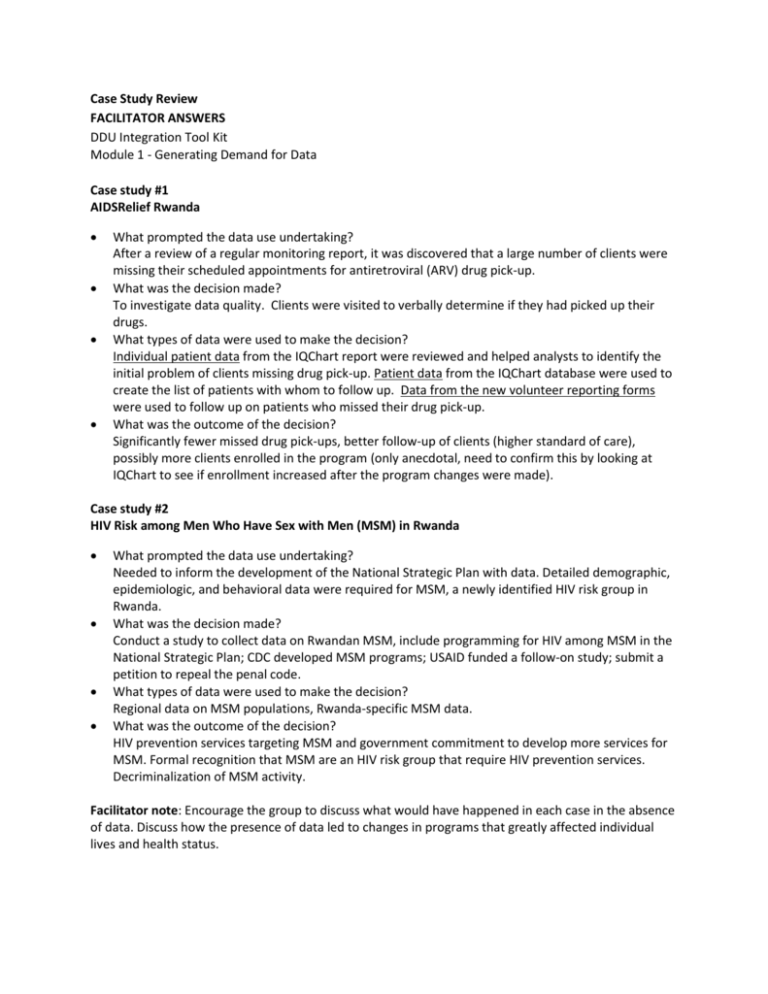
Case Study Review FACILITATOR ANSWERS DDU Integration Tool Kit Module 1 - Generating Demand for Data Case study #1 AIDSRelief Rwanda What prompted the data use undertaking? After a review of a regular monitoring report, it was discovered that a large number of clients were missing their scheduled appointments for antiretroviral (ARV) drug pick-up. What was the decision made? To investigate data quality. Clients were visited to verbally determine if they had picked up their drugs. What types of data were used to make the decision? Individual patient data from the IQChart report were reviewed and helped analysts to identify the initial problem of clients missing drug pick-up. Patient data from the IQChart database were used to create the list of patients with whom to follow up. Data from the new volunteer reporting forms were used to follow up on patients who missed their drug pick-up. What was the outcome of the decision? Significantly fewer missed drug pick-ups, better follow-up of clients (higher standard of care), possibly more clients enrolled in the program (only anecdotal, need to confirm this by looking at IQChart to see if enrollment increased after the program changes were made). Case study #2 HIV Risk among Men Who Have Sex with Men (MSM) in Rwanda What prompted the data use undertaking? Needed to inform the development of the National Strategic Plan with data. Detailed demographic, epidemiologic, and behavioral data were required for MSM, a newly identified HIV risk group in Rwanda. What was the decision made? Conduct a study to collect data on Rwandan MSM, include programming for HIV among MSM in the National Strategic Plan; CDC developed MSM programs; USAID funded a follow-on study; submit a petition to repeal the penal code. What types of data were used to make the decision? Regional data on MSM populations, Rwanda-specific MSM data. What was the outcome of the decision? HIV prevention services targeting MSM and government commitment to develop more services for MSM. Formal recognition that MSM are an HIV risk group that require HIV prevention services. Decriminalization of MSM activity. Facilitator note: Encourage the group to discuss what would have happened in each case in the absence of data. Discuss how the presence of data led to changes in programs that greatly affected individual lives and health status.
